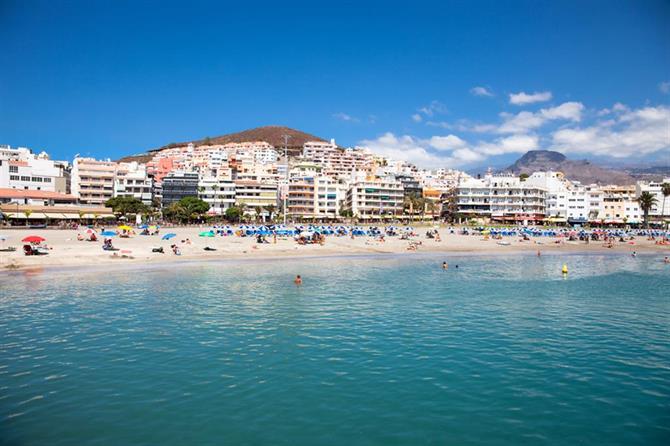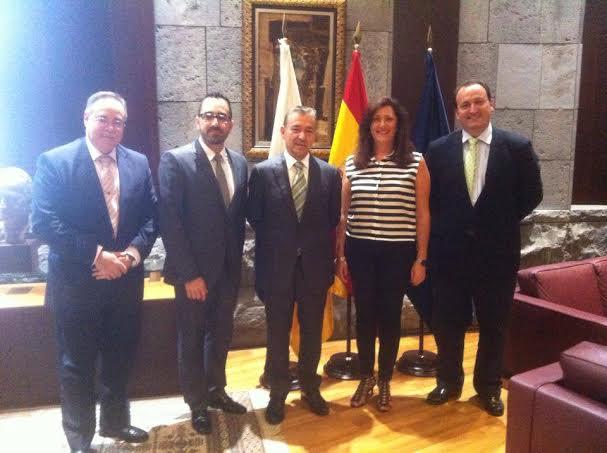Update 25th August 2014: Since we published this article, the Canary Islands Government has given its commitment to introduce a regulation for holiday rentals. It's planned to have a draft decree ready by the end of this year. We'll keep information updated on this subject.
The Canary Islands, long established as one of the most popular holiday destinations in Europe, receiving over 12 million tourists each year, is locked in a battle: The Government vs. The People. The battle is over the regulation of holiday rentals, which up to now have been denied proper legislation, with penalties being meted out to homeowners who have continued to offer their homes to tourists.

Tell us about ASCAV and the motivation behind the work of the association
Ascav is a non-profit organisation, born out of the injustice committed against the 53,000 Canarian families who rent their property out to tourists, as a means to subsidise their income. Some 7,500 of these families have received fines ranging from € 18,000 to € 60,000. We can’t allow this to continue. Our team selflessly devotes its free time to helping the thousands of families that have been affected.
What does the current legislation allow and deny in terms of renting private homes to tourists?
The amendment of the Urban Rentals Law (LAU) was introduced in May 2013, with the new legislation passing the responsibility to the regional governments to regulate holiday rental accommodation. Before the new legislation was passed, owners could rent their homes to tourists under the LAU. The Canary Islands has yet to conform with the new legislation, so we are now in a legal vacuum, with no regulation or way of protecting the rights of local homeowners.
The current legislation was introduced in 1995. What do you think are the main differences in the tourism sector, then and now?
In 1995 the Canary Islands Tourism Law was approved. The ruling did not expressly prohibit the use of holiday homes. The decree 142/2010 regulated the various types of tourist accommodation under Canarian law, but did not include the term ‘Vivienda Vacacional’ (holiday home) amongst them. This was surprising at the time as it had been included in the previous Decree of 1982.
Has the number of private holiday rentals increased or decreased over time?
In terms of the volume of holiday rentals, Spain ranks third in the world after the US and France. In turn, the Canary Islands is the autonomous community with the highest number of holiday rentals in Spain. According to an international tourism consultancy, some 53,000 holiday homes are located throughout the islands. This figure can be put into context when you consider the second region with the highest volume is Andalucía, which is home to just 16,000 private holiday homes. Our islands are a true world power in this type of accommodation.
In your opinion what is the current state of the tourism sector in the Canary Islands? What percentage of accommodation booked is a holiday rental?
The economic activity generated by holiday rentals in the Canary Islands is quite staggering, around 1,000 million euros per year. The industry creates around 34.20% direct and indirect employment for the islands, that’s equivalent to 200,000 job opportunitie. It also represents an average Tourism GDP of 33.10% for the region. So you can see we're talking about an extremely important industry.Do you believe that the freeze on holiday rentals in the Canary Islands has affected the economy from tourism?
Without a doubt. There are many homeowners who want to rent their holiday home, but don’t, or used to rent their home out, but have stopped, for fear of receiving a penalty. This really is a missed opportunity for the Canary Islands, in terms of revenue generation. Plus the fines which have been meted out, have led to the utter ruin of thousands of Canarian families.
At the same time, investment in property is also slowing down; with investors unwilling to entrust their money in the Canary Islands, if ultimately, they aren’t able to rent the properties out and see a return on their investment.
Has the legislation been enforced with the same commitment across all the islands?
Tourism Inspectors working for the Canary Islands Government have jurisdiction to apply sanctions throughout the entire region.
Who are the main antagonists working against the holiday rentals sector?
There are many businesses dedicated to tourism who are concerned about losing market share, especially when you consider that last year 1,300,000 tourists visited the Canary Islands and stayed in holiday homes. This equates to 10% of all tourists that visit the archipelago.
What will happen to the penalty fines should the government decide to amend the legislation?
We have already mentioned that sanctions have been imposed on more than 7,500 homeowners, causing the absolute ruin of many families. If the Canary Islands Government decides to regulate the sector, we’ll have to to wait to analyse the conditions met out to these households. ASCAV is fighting for the regulation to be broad and one which takes into account distinct types of accommodation, as long as they meet with the minimum quality standards.
Tell us about the feedback you have received since launching the change.org petition. How did it feel to present 20,000 signatures to the president?
 The support we have received from the general public has been incredible. We reached 20,000 signatures in just five months. During a recent meeting we had with Mr Paulino Rivero, President of the Canary Islands Government, we presented the 20,000 strong petition.
The support we have received from the general public has been incredible. We reached 20,000 signatures in just five months. During a recent meeting we had with Mr Paulino Rivero, President of the Canary Islands Government, we presented the 20,000 strong petition.
The President gave us his commitment to treat the matter with the social and economic importance that it deserves. Since then, the Prime Minister has confirmed that the Government will present their decision on the possible regulation of vacation homes in the Canary Islands in a meeting taking place this week.
Moving forward, how and when do you think a new legislation will be introduced?
We are in mid-struggle and we are not going to let our guard down for a minute. We will not cease our efforts until this issue is regulated. We refuse to become complacent. Today there is no regulation and that's what matters. In terms of timing, it depends on the Canary Islands Government, and how committed they are to make positive changes now, rather than later. We have to wait and hear their response.
What we can say is ASCAV is fighting to ensure that a legislation is introduced as soon as possible. During our last meeting with the President of the Canary Islands, we presented a legislative proposal, which set out certain modifications to Decree 142/2010, which we believe are needed to protect vacation homes with proper legislation and to bring the Canary Islands in line with rest of the world.
It’s really important that people join our campaign. The more support we have for the campaign, the better representation on the table and the more likely they are to listen. It’s happening now and we urge people to join.
How will tourism in the Canary Islands benefit if these changes take place?
The whole of Europe is watching to see how this story unfolds. It’s impossible for most of us to understand how a tourist destination, such as the Canary Islands, which receives 12 million tourists a year, 10% of which choose holiday rentals, can actually be revoking and sanctioning these holiday homes. We understand the issue has even been discussed in the German and British media.
Are you working with association’s in other regions to standardise the new regulations and support owners?
We are in close contact with other regional associations.
How can people get involved?
We encourage owners to defend their rights. It’s vital they defend themselves, because fines are being imposed on them, rather than the intermediaries or agents. Nobody is going to defend you, if you don’t defend yourself.
The Asociación Canaria del Alquiler Vacacional, ASCAV, is the only association that exists to fight for better regulations and to defend holiday homeowner’s rights in the Canary Islands. And we’ll keep working to a better future, even after legislation has been introduced. It’s essential that an industry generating millions of annual revenue, creating nearly 200,000 jobs and with over 50,000 homeowners has an association that will continue to defend and legally represent them. It’s also important to mention that our aim is to become a considerable buying force, negotiating better deals on holiday home insurance, advertising and other specialist services.
Our membership is a symbolic 5 € per month, which helps us cover the costs of administration and management. You can find all necessary information in www.ascav.es
Image credit: Photo taken during ASCAV's meeting with the President on the 14th May 2014. From left to right: Domingo Berriel (Minister of Territorial Policy); Javier Valentín (Lawyer for ASCAV); Paulino Rivero (Canary Islands President); Doris Borrego (President of ASCAV); Ricardo Fernández (Deputy Minster of Tourism)
